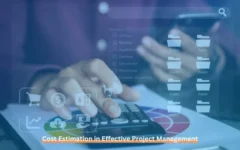Top 12 Project Management Skills You Need to Succeed
November 26, 2021 2024-04-25 6:13Top 12 Project Management Skills You Need to Succeed

Top 12 Project Management Skills You Need to Succeed
Some skills play into excelling as a project manager, apart from having the requisite degree. A degree signifies that one has received the necessary basic information and training, aiding a job hunt. But once you’ve landed the role, you’ll need project management skills to retain it and thrive.
That is where your project management degree will shine. Why? Because it highlights your mastery of essential industry talents. This includes both technical and soft skills. Technical skills, especially, are honed in the crucible of a degree program. That being said, it is fully possible to train your soft skills without having an academic background in project management. With this in mind, here is a list of project management skills that are in demand among project managers.
Discover the top 12 project management skills that will pave the way to becoming a successful project manager.
Table of Contents:
- Leadership
- Communication
- Task Management
- Cost Management
- Time Management
- Risk Management
- Quality Management
- Critical Thinking
- Negotiation
- Problem-Solving
- Project Recovery
- Technological Skills
Leadership
It’s no surprise that this is the first ability mentioned here. Project management inherently involves leadership skills and requires people to handle teams. Motivating and mediating the team is necessary to elicit the best performance from members. While doing this, it’s vital to recall that every individual is different and needs different leadership approaches. If you’re interested in pursuing a career in the field, it’s necessary to sharpen your project management skills. And leadership is one of the most critical ones.
Communication
Leadership and communication go hand in hand. Teams can’t deliver the necessary results without getting a clear idea of what’s needed. Thus, communication in any managerial role is important. However, it is especially crucial for a project manager. This is because it can impact the entire undertaking. Being a good communicator is also a valuable tool when communicating with vendors and stakeholders for the project.
Task Management
Much like a jigsaw, tasks are the little pieces that the project (puzzle) is made of. Well thought out and placed, they merge to become a finished project. It is part of a project manager’s role to prioritize and assign tasks appropriately. They must also ensure that it is completed on time.
Cost Management
It does not need to be explained that projects have economic allocations. As a result, budgeting is a necessary project management skill. It is essential to strictly adhere to it. While it sounds simple, it is easier said than done. A good project manager considers a wide range of factors as they create the budget plan. This includes budgeting for contingency plans in case something goes wrong, too. However, time and building experience are on your side. Thus, it will become easier to plan and effectively manage disturbances.
Time Management
Perhaps one of the most important and overlooked parts of being a project manager. It is a budget of its own to break the undertaking down into small tasks and set achievement timelines for them. Any project manager worth their salt can tell you that deadlines rule the day. Task deadlines and project milestones are inescapable parts of leading a project. We won’t go into fearmongering and say that even a single setback can prove fatal to your project. However, we will say that time management is a very valuable skill for aspiring project managers to cultivate.
Risk Management
Let’s engage in a visual exercise to appreciate the role of risk management in a project manager’s life. It helps to look at them as guests who haven’t RSVP’d to a party you’re planning. There’s a high chance they’ll visit, and it will ruin your efforts if you don’t plan for at least a few of them. Thus, it is an important project management skill to identify potential risks. The second step to this is to make a contingency plan for when it does occur. However, much like an invited party guest, sometimes they turn up out of the blue. So, like any good planner, it will fall to the project manager to keep calm and implement control.
Quality Management
In the same vein, quality management is the lesser-known cousin of risk management. It’s an undeniably vital part of project management to ensure that the quality of completed tasks is good. While most lists may not mention this one individually, we think it’s worth highlighting here. It can be troublesome to correct if it hasn’t been checked in a long time. So, we recommend setting aside a day to check this weekly or monthly, depending on the project. Deadlines can cause us to overlook this if we’re not careful, so good luck!
Critical Thinking
While it is a common and popular phrase, few genuinely look into it or why it has gained popularity. Critical thinking in project management can look a bit different than most of us are accustomed to. It involves handling the multiple conflicting situations that could potentially derail the project. If ever a situation requires focused, level-headed thought as a project management skill, it would be this one. While it can be daunting to execute at the start, time, knowledge, and experience will blend to work in your favor.
Negotiation
Negotiation. Some might assume that this falls into the realm of communication skills. However, we believe it to be important enough to warrant a distinction. A project manager has to deal with company heads, stakeholders, and vendors regularly. They represent their project and their team during this time and have to adjust prices and demands often. A project manager’s negotiation skills are also called on to manage team conflicts and mediate to satisfaction. Needless to say, it’s a vital project management talent.
Problem-Solving
A sub-category of critical thinking, problem-solving is an essential project management skill. The circumstances that call for it are typically unforeseen and pivotal to a project. It helps to think of it as a moment when all your training bears fruit.
Project Recovery
Even though we’ve made amazing strides in technology and digital innovation, we can’t escape the fact that unexpected problems can still crop up. It is then up to the project manager to take stock of the timelines, financials, scope of work, and resources. Then, they build their project recovery plan. Specialists typically spot and mitigate potential risks and develop action plans. It is a popular specialty within the profession.
Technological Skills
We don’t think this one needs a lot of explaining. As with any white-collar job, project management now requires some technical digital know-how. As such, it has emerged as a useful project management skill. It also involves staying abreast of changes and incorporating the new, cutting-edge digital tools on the market. The benefit of this is that a well-digitally adapted project manager makes their work easier. Thus, we strongly recommend setting aside a small part of each month and staying tuned to technical advancements.
Find the related blog: Unlocking Success: The Online MBA Degree in UAE
Conclusion
Some view professional soft skills as a natural extension of being human. Others are aware that these skills in their raw form may not be of much help without polishing. We believe that project management skills can be learned.
This is a core tenant of the Project Management MSc course we offer in association with the University of the West of Scotland. As an online provider of world-class courses from globally ranked institutes, the Lincoln University of Business and Management works to ensure that our students have access to well-rounded courses. This includes teaching necessary technical knowledge and building strong soft skills. So, if you’re interested, browse through our project management courses or connect with us on WhatsApp.





